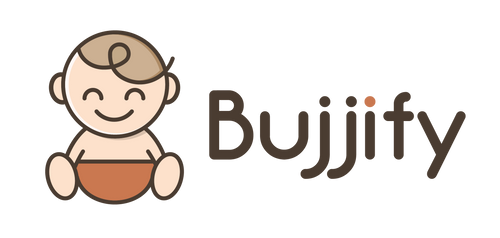The first four weeks of your baby's life are a whirlwind of change and growth, offering an incredible glimpse into their journey of discovery. This period is marked by significant developmental milestones that showcase their adaptability and the bond forming between you and your precious newborn.

Baby's Developmental Milestones During the First 4 Weeks
Motor Skills:
- Head Movement: During tummy time, your baby may surprise you by moving their head from side to side or even lifting it for a few precious seconds at a 45-degree angle, demonstrating their budding neck strength.
- Hand Coordination: Newborns typically keep their hands in tight fists but may partially close them. Placing a small object or your finger in their palm results in an instinctive grip, a fascinating sign of early motor development.
Visual and Auditory Skills:
- Visual Focus: Your baby's visual world rapidly expands as they can now focus on objects 8 to 12 inches away, enhancing those heartwarming moments of gazing into your eyes during feedings and cuddles.
- Staring at Patterns: Infants are captivated by high-contrast patterns, such as black-and-white images, showcasing their exploration of developing sight.
- Recognizing Familiar Faces: Among the most heartwarming milestones is your baby recognizing familiar faces and voices, often responding with an adorable smile that deepens your bond.
- Seeking Eye Contact: Babies are naturally social beings, and you'll notice your baby trying to make eye contact when you talk to them, a beautiful expression of their desire for connection.
Smell and Touch:
- Enjoying Touch: Your baby revels in the sensation of being touched, actively seeking skin-to-skin contact with you, providing not only comfort but also strengthening the emotional bond.
- Calming Scent: Newborns find their mother's scent exceptionally calming and comforting, a recognition of the safe and nurturing environment provided.
- Texture Preference: While limited, your baby begins to recognize a few textures and may display a preference. This early exploration of tactile sensations sets the stage for future sensory development.
- Sucking Reflex: Your baby's sucking reflex is in full swing, instinctively responding to anything touching the roof of their mouth, whether it's during feeding or self-soothing.
Cognitive and Emotional Skills:
- Communication Through Crying: Crying becomes your baby's primary means of communication, conveying needs like hunger, discomfort, or simply the desire to be close to you.
- Startled Reactions: Sudden or loud noises can startle your baby, leading to jerky movements or crying—a reflexive response signaling their growing awareness of the world.
These milestones are not just signs of physical and sensory progress but also a testament to your baby's adaptability and the strength of your bond. Every moment observing these milestones is a glimpse into the incredible journey of growth and discovery ahead.
Developmental Delays to Monitor During the First 4 Weeks
Every baby develops uniquely, but it's essential to be vigilant about potential developmental delays. While most infants typically reach certain milestones within the first four weeks, some signs may warrant attention:
Motor Skills:
- Limited Movement: Newborns often exhibit limited motor skills, but extreme stiffness or floppiness in your baby's limbs may be concerning.
Visual and Auditory Skills:
- Lack of Visual Focus: Most babies begin to focus on objects and faces within 8 to 12 inches. If your baby doesn't seem to track or show interest, it's worth discussing.
- Hearing Issues: Babies typically react to sound; if your baby doesn't respond to loud noises or your voice, consult a healthcare professional.
Smell and Touch:
- Limited Responsiveness: If your baby consistently shows little response to touch or struggles to calm down, consult a healthcare provider.
Cognitive and Emotional Skills:
- Extreme Crying: While crying is common, excessive, inconsolable crying may indicate an issue.
- Lack of Engagement: Babies are naturally social; if your baby consistently avoids eye contact or shows limited interest in faces or voices, seek advice.
Remember that developmental delays vary, and not every baby will meet milestones at the same time. Persistent concerns warrant consultation with a pediatrician or developmental specialist, as early intervention can significantly impact your baby's development.
Your Baby's 1-Month-Old Checkup: What to Expect

The 1-month-old checkup is a vital milestone in your baby's healthcare journey, offering insights into their growth and development. Here's what you can expect during this significant appointment:
- Weight and Measurements: Your baby's growth is a primary focus, with weight, length, and head circumference measurements compared to standard charts.
- Physical Examination: A thorough examination assesses your baby's eyes, ears, nose, mouth, heart, lungs, abdomen, skin, and reflexes.
- Feeding and Nutrition: Discuss your baby's feeding habits and nutrition with the healthcare provider, addressing any challenges.
- Developmental Milestones: Your baby's ability to hold their head up during tummy time, respond to stimuli, and display social behaviours like smiling will be evaluated.
- Vaccinations: Depending on your baby's schedule, immunizations may be administered to protect against diseases.
- Vitamin D Supplementation: The importance of vitamin D for healthy bone development may be discussed, especially for exclusively breastfed infants.
- Parental Questions and Concerns: This is an opportunity to ask questions and discuss any concerns about your baby's health and development.
- Developmental Guidance: You'll receive guidance on upcoming milestones, sleep patterns, feeding transitions, and fostering cognitive and emotional development.
- Emotional Support: Caring for a newborn can be emotionally challenging, and the checkup is a chance to discuss any stress, anxiety, or postpartum concerns.
- Follow-up Appointments: Future appointments may be scheduled to monitor your baby's progress and address emerging issues.
This appointment is about more than physical health; it's an opportunity to receive guidance and support in your parenting journey. Bring your questions and observations, as your healthcare provider plays a crucial role in providing the best care for your baby during this critical stage of development.
